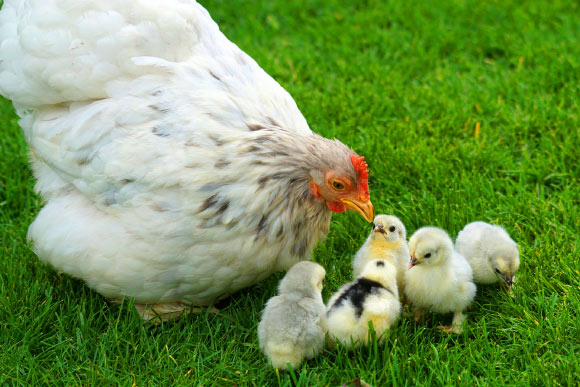Published in the Proceedings of the National Academy of Sciences, the study also found that new-born chicks know to slow down or stop moving to avoid being noticed when a predator is far away.
Appropriate reactions to predators are fundamental for survival and in the case of prey-predator interactions, learning the best strategy by trial and error is very dangerous and might result in death.
For this reason, it has been assumed that these responses of fleeing and freezing do not require learning but the evidence was sparse and contradictory.
“Our results show that at the beginning of life animals are well equipped to cope with threats present in their environment, they possess some predispositions that help them to survive,” said co-author Dr. Elisabetta Versace, a researcher in the Center for Mind/Brain Sciences at the University of Trento, the Department of Biological and Experimental Psychology at Queen Mary University of London and the Alan Turing Institute.
“We conducted experiments looking at newborn animals and were thus able to show how differential anti-predatory responses are in place already at birth,” added senior author Professor Giorgio Vallortigara, from the Center for Mind/Brain Sciences at the University of Trento.
Dr. Versace, Professor Vallortigara and their colleague, University of Trento’s Dr. Marie Hebert, ran experiments where the chicks did not have a chance to interact with any moving objects once they hatched.
The scientists showed that at the first encounter with approaching threats (a looming stimulus overhead, like an approaching raptor) or distant moving threats (a small object sweeping overhead, like a raptor exploring territory for prey), the chicks responded appropriately.
The chicks fled away from the approaching threats and reduced their speed in the presence of far sweeping stimuli.
“Together with our previous studies about the social predispositions that help young chicks and humans to interact with their social partners these findings clarify we are not born as blank slates, but with sophisticated mechanisms that enable us to use specific strategies in front of particular stimuli,” Professor Vallortigara said.
_____
Marie Hébert et al. Inexperienced preys know when to flee or to freeze in front of a threat. PNAS, published online October 28, 2019; doi: 10.1073/pnas.1915504116








